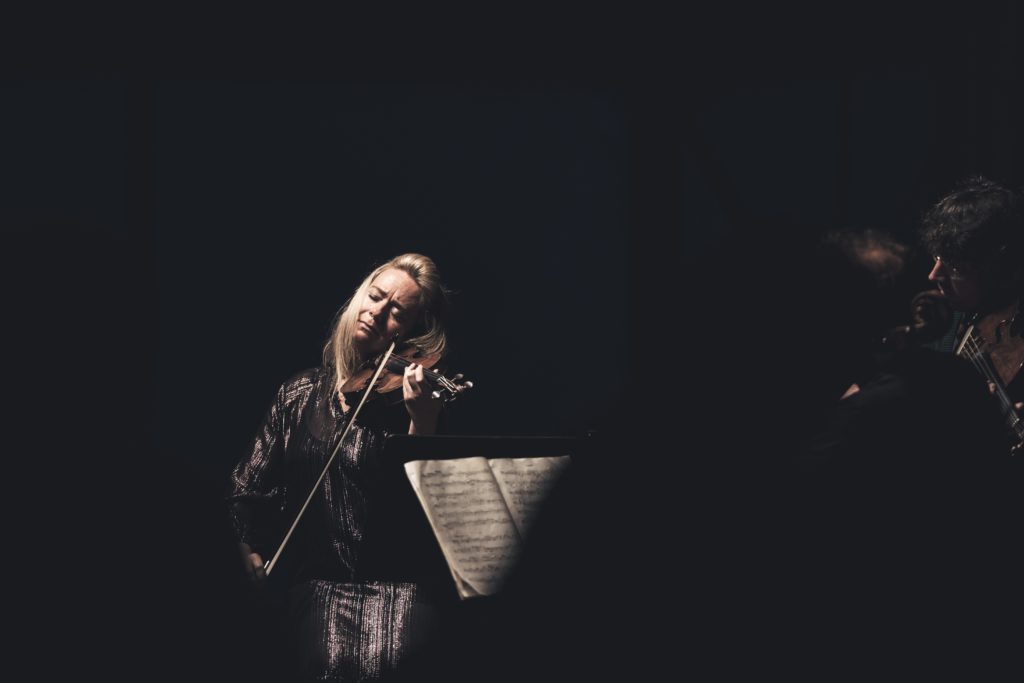
THE two Viennese Schools – the classical and the post-romantic – were brought into sharp contrast in this succulent programme, in which works by Mozart and Schubert framed music by the big three of the Second Viennese Schoool, Schoenberg, Berg and Webern.
Charlotte Scott and Joseph Havlat took the stage for Mozart’s two-movement Violin Sonata in E minor, K.304, which he wrote in the wake of his mother’s death. Scott’s perceptive violin has long been a favourite with this audience, whereas Havlat’s piano is a relative newcomer, but they blended sympathetically.
They treated the Allegro’s development section as a clear attempt by the composer to exorcise his grief, its storminess bordering on anger here. The tender, sighing motif in the succeeding trio had great feeling, although the minuet – hardly a dance – was much more fiery.
Webern’s Langsamer Satz (‘slow movement’) in C minor is a student piece for string quartet. With Scott at the helm, the ensemble worked its way urgently to its central unison before a muted elegy and a satisfyingly tender final pianissimo.
In similar vein was Berg’s Adagio, a distillation for trio of the slow movement of his Chamber Concerto. Here Scott’s violin was joined by Matthew Hunt’s clarinet, the two phrasing sensitively while Ariel Lanyi’s piano was intuitive in initiating mood changes.
Webern saw the commercial sense of thinning down Schoenberg’s First Chamber Symphony from the original 15 players to a mere quintet. Here we had the rare chance to hear the version with flute and clarinet alongside piano trio.
Forthrightly led by Alena Baeva’s violin, with Lanyi at the piano, the ensemble delivered clarity and vigour in equal measure, with contrastingly elegant lines in the Adagio before an exciting climax.
But the best was, incredibly, yet to come. Schubert’s Fantasy in C major, D.934 is rightly regarded as an Everest of the violin and piano repertoire, not to be undertaken lightly. Benjamin Baker’s violin was on fire and he played with assuringly few glances at his score.
Vadym Kholodenko recorded this work last year with his regular duo partner Alena Baeva. So we were in the hands of experts: both clearly knew the score in every sense. There was an immediacy here that felt utterly spontaneous, from the teasingly enigmatic opening to the spine-tingling final Presto.
En route, Baker was amazingly fluent, throwing off the variations on Sei Mir Gegrüsst (I Greet You), a song of romantic yearning, with carefree abandon after a gaily dancing czardas: we had eloquent rubato, dazzling pizzicato, breathtakingly accurate moto perpetuo, it was all there.
Kholodenko was with him every step of the way, indeed spurring him on: their relish was intoxicating. They were not afraid to be coolly meditative in the Allegretto before a finale of heart-stopping virtuosity. This was a sensational performance, surely destined to be the highlight of the festival.
Review by Martin Dreyer
